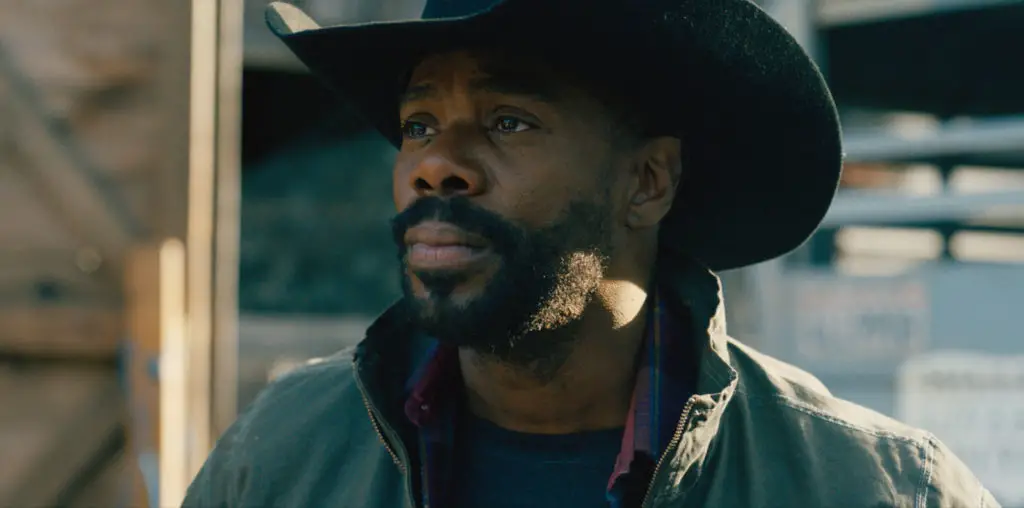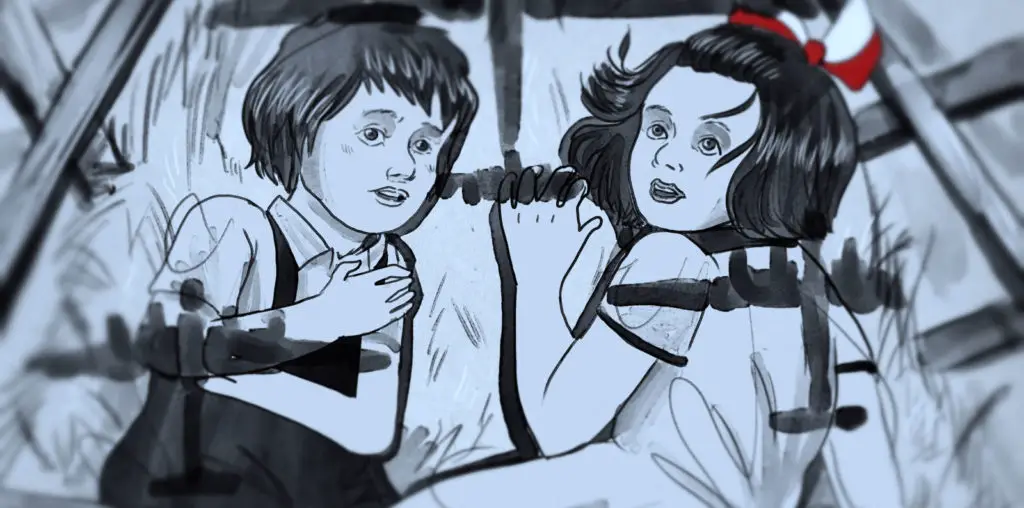
I really thought “Imaginary Heroes” was very touching, but there is very sharp humor throughout. What is your approach to writing comedy?
Well, it was the biggest challenge of the film — keeping the tone unique and the right blend of comedy and drama… the idea being just when you think the film is going in one direction, it changes, story-wise and tonally. The movie can fall very quickly into melodrama if there isn’t enough humor, and the humor isn’t biting enough.
I consider IH a black comedy with drama, not necessarily the other way around.
Did you see a central character from the first draft or did the final script unexpectedly gravitate toward the struggle of younger son Tim Travis?
I always envisioned the movie as an ensemble, but seen through the eyes of Emile’s character. That this was a world whose characters are all important to the story, like a giant tapestry, where each person affects everyone else, but we need, as the audience, an entrance point, a set of eyes to use as our own, and I thought Emile’s character was the right one — the most affected by the story, and the cleanest, (almost most adult) viewpoint.
When you’re collaborating with your writing partner, do you both share the process/dig for ideas together OR pass drafts, ideas and outlines back and forth?
Well… I think every writing team works differently, but Mike (Dougherty) and I have found what works for us. We talk aloud and collaborate openly on the story, outlining in a room, sometimes in a notebook or on the wall, but together, out loud. We then break the story up into its respective scenes and/or sequences, and split them up — basically saying, this is my favorite scene, I want this one, etc… Then we break and work on them individually, then switch, and rewrite each other’s, then switch and rewrite again, finally combining them.
Exploring the comparisons of writing for “Super” characters and “Everyday” persons, the similarities may involve empowerment and/or personal demons BUT where are the subtle differences?
Well I think honestly it doesn’t matter for us whether we’re writing Wolverine or someone like Sandy Travis (Sigourney Weaver). I mean, they all have demons and they all have subtleties, ticks, lines, little things they do that make them real people. I guess in a film like “Imaginary Heroes” I just get to spend a lot more time nurturing those smaller characteristics, and probably they end up defining the character, more so than Wolverine, who is first and foremost a Hero.
You seem to “genre-hop” with such ease and great success. What film in recent memory presented a genre/style of filmmaking that inspired you to explore that kind of storytelling?
That’s actually a very important question for me — in two ways firstly, I admire most and want to emulate directors like Peter Weir or Stanley Kubrick, who genre-hopped with every film they made, the only thing in common being that they were great stories with the perfect balance of character and genre/concept…
Secondly, films that influenced me the most when I was a teenager, that ultimately influenced the tone and treatment of IH itself, were a series of movies released in 1994/1995 – “Usual Suspects”, “Pulp Fiction”, “Fargo”. They were really important to me in many ways, but mostly because they taught me that a film can be anything. Film can cross all boundaries, tonally, story-wise, genre-wise. “Pulp Fiction” screwed with timelines. “Fargo” used humor in moments where no one thought it could work.
“Usual Suspects” changed my idea of what kind of truth a film could tell. These films were the inspiration, telling me that I can make a drama that moves from tone to tone and tells an honest story. It works when the audience is along for the ride.
How will you approach the Superman saga and tell a fresh story from such familiar comic book lore?
I’m kind of banned from talking about Superman! Everything is sooo top-secret.
Damn. Thought I could break you. Well… how are you evolving as a writer/director and will you ever separate those 2 tasks to focus on one exclusively?
Yes, well, my goal in the next few years is to be able to write on big projects that I love, with people I love working with (Bryan Singer/Mike Dougherty), but then build a directing career that makes movies somewhere between the IH and X2s of the world — that is, up next, the kind of movies Spielberg made in the 80s. Films about real people, going through difficult things in the midst of something greater, something vaguely sci-fi — a large concept behind an intimate story.

